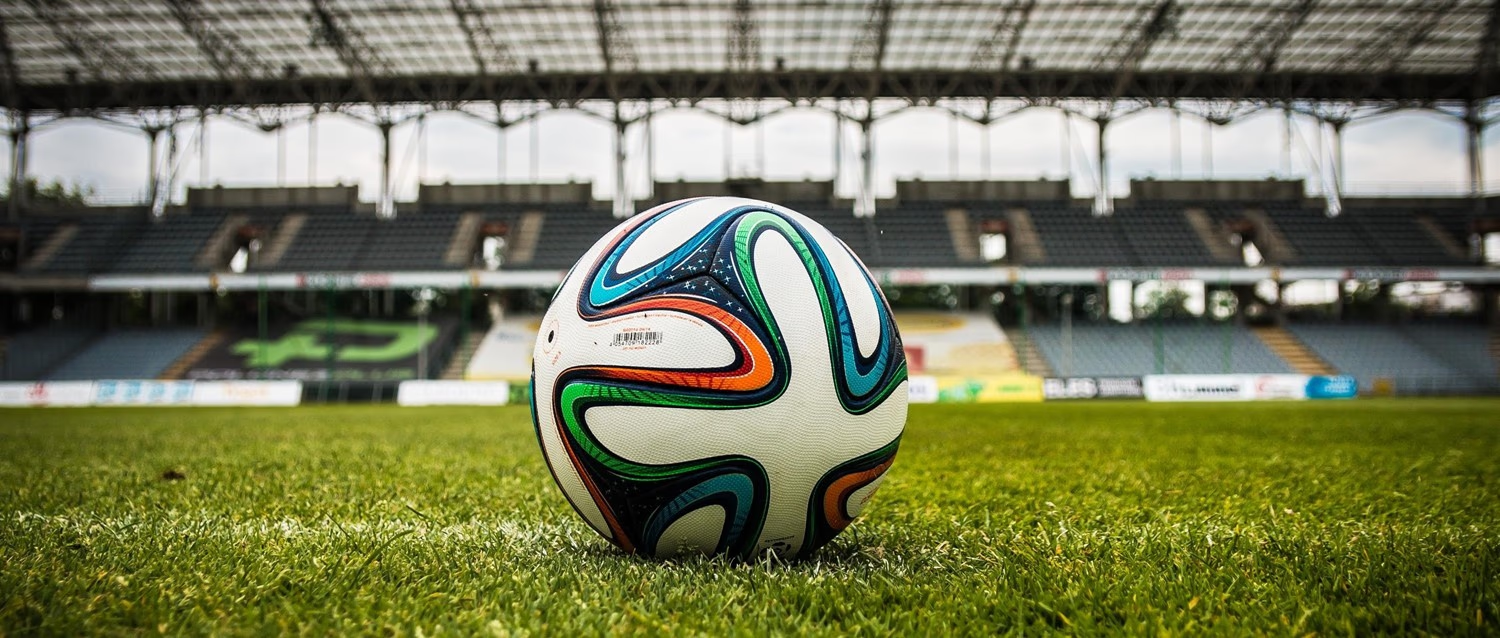
Can football tackle mental health stigma?
Peer reviewed by Dr Sarah Jarvis MBE, FRCGPLast updated by Ross DaviesLast updated 6 Jun 2018
The World Cup is almost upon us, but beyond the pitch, football is doing more than ever to address longstanding stigmas around male mental health. With more players speaking out about their problems and the creation of new grassroots projects, is the beautiful game finally setting an example?
In this article:
It’s 1991 and a young Mickey Bennett is riding on the crest of a wave.
A pacey winger, he is already a crowd favourite among the Charlton Athletic faithful. He has just returned from an England under-20s tour of Brazil. A call-up to the senior international squad could soon be on the cards. He’s also just bought himself a new flat.
Life couldn’t be better.
Bennett is 20 years old playing a game that comes easy to him when he takes to the field against Queens Park Rangers one Saturday afternoon. Shortly after kick-off, he receives the ball which an opposing player readily anticipates. But the opponent’s foot not only takes out the ball but Bennett’s knee too.
It soon transpires that Bennett has ruptured his anterior cruciate; his cartilage pulped. A prognosis of six weeks out soon turns into nine long months. It’s the first time the young player has ever sustained an injury. Suddenly, high hopes for the future are submerged by a torrent of fears. He wonders whether he’ll be the same player when he returns – will he be as quick? Will he ever play football again? How will he keep up with the mortgage?
Continue reading below
Someone to talk to
Recounting the story some 27 years later, Bennett – who now goes by the first name of Michael – says what he needed more than anything during those dark days was simply someone to talk to; a sounding board to help work through a confusing melange of fears and anxieties.
“There wasn’t anyone to speak with,” he recalls. “I’d gone from breaking into the Charlton first team and playing for England to wondering whether I might have to retire at 20. It massively affected my emotional wellbeing and overtook my life.”
While Bennett recovered from his injury, and went on to represent the likes of Wimbledon, Millwall and Cardiff City, he was never the same player. But the experience left an indelible imprint on him around football’s uneasy relationship with male mental health. Having retrained as a counsellor in the early 2000s, Bennett now works at the Professional Footballers’ Association (PFA) as its director of player welfare.
Bennett heads up a department offering mental health and emotional support to both current and former players. Since his appointment in 2011, he has helped establish a nationwide network of counsellors, as well as 24-hour helpline. Last year, the PFA delivered its first mental health and wellbeing conference at St George’s Park.
“It’s about making players aware of the support available to them,” explains Bennett. “We’re aware that of a lot work is done in a physical aspect at football clubs, but nowhere near enough when it comes to the emotional and mental support side.”
Patient picks for Healthcare
Opening up
That said, the traditional walls of stigma around mental health in football appear to be crumbling. The suicide of Wales boss Gary Speed in 2011 at the age of 42 can be seen as a watershed moment of a hidden crisis within the game. Since then, a number of players have gone public with their struggles, from former England goalkeeper Chris Kirkland to ex-pros Clarke Carlisle, Leon McKenzie and Jason McAteer.
This has also been reflected in a sharp increase in players making use of the PFA’s counselling service. Last year, 403 players approached Bennett’s department, up from 160 in 2016. This year already, “we have passed the 400 mark”, says Bennett. The PFA has also increased its pool of counsellors to 187; when the department was first set up, there were only 28 at its disposal.
“The game has changed massively since when I was a player,” says Bennett. “Players now are becoming much more comfortable talking about their issues.”
Gary Charles broke into Nottingham’s Forest first team in the last 80s – around the same time as Bennett did at Charlton. While also unlucky with injuries, Charles still managed to amass over 300 professional games – he went on to play for Aston Villa, Benfica and West Ham – including five cup finals and two England caps.
It’s the kind of CV most aspiring professionals would take at the drop of a hat, yet for Charles it tells a story of what might have been. The final years of his career were beset by injury, coupled with a growing dependency on alcohol, which culminated in jail term for drink driving.
Might things have turned out differently, I ask him, if he’d had the same support available to him that today’s pros can turn to when in need?
“I get asked this quite a lot,” he says, “but it’s one of those questions I’ll never know the answer to. But if I’m brutally honest, I probably only achieved 50% of my potential. The drinking culture has definitely shifted from when I was playing. We didn’t have welfare officers. If you had any problem, you went to the physio and that was it.”
Charles is now over ten years sober and runs his own organisation, GCSportscare, which provides advice and support for sportspeople experiencing mental health problems, as well as addiction problems.
He agrees with Bennett that there is a growing awareness around mental health in football, but argues that much more still needs to be done to ensure those affected are seeking the help they need.
“I think young players – and young athletes in general – still find it hard to talk about their problems,” says Charles.
For all the talk of progress made, and various awareness campaigns, football can indeed be an unforgiving arena. In February, David Cox, who plays for Scottish League Two Side Cowdenbeath, described being labelled a “psycho” by both fellow players and fans after opening up about mental health struggles.
There’s also the question of privacy. Like any other person, when a player seeks help from a healthcare professional, it will always be completely confidential. But while some players might be willing to speak publically about their own mental health experiences later on, others are not.
This isn’t out of shame, says Charles, but rather players wanting to handle things on their own terms.
“In some cases, our clients like to keep it quiet,” he says. “If you’re being treated for depression or alcoholism, the transition from being in treatment to having to go out and play in front of 60,000 people is really hard – especially when you’ve got people shouting really horrible things from the stands.”
Continue reading below
Helping communities using football as a platform
But as the UK’s national sport, footballers and football clubs can use their brand status to help bring about change beyond the pitch. Everton was the first Premier League club to appoint a mental health coordinator, and last year won the Beyond Sport Global Award for its work promoting better health in the local community.
“Football clubs are very much seen as beacons within their communities, drawing people together in ways not many other things can do,” explains Johnnie Garside, the club’s health and wellbeing manager.
“At Everton we take our community responsibility seriously and none more so than when it comes to raising awareness on pertinent social issues. We have been passionate about the area of mental health for over a decade and during such time have used our platform to positively affect the stigma that exists within society around mental illness.”
Since 2008, Everton has run its Imagine Your Goals programme, consisting of a range of football therapy sessions, coupled with mental wellbeing-related education and personal development workshops.
“The main means by which we have attempted to influence this has been by speaking out to help others speak up and seek the support they need,” says Gartside.
“By creating a specific mental health coordinator role to help drive this agenda forwards both internally and externally, we have managed to pioneer a number of flagship community-based mental health prevention and support programmes that have played a significant role in improving the quality of life of many vulnerable and at-risk individuals.”
The Coping Through Football project was also launched in 2007. Set up in tandem by two sporting charities, the London Playing Fields Foundation and Leyton Orient Trust, the initiative works with the NHS to help young people and adults experiencing mental health issues use football as a platform to increase their self-esteem and confidence, and get their lives back on track.
While consisting of six football sessions a week based in Redbridge and Waltham Forest, northeast London, chief executive Alex Welsh is quick to stress that Coping Through Football is not a football project, but a social inclusion project.
“This is not a football project - it just uses football to bring about social inclusion and health outcomes,” he says. “We work hand in glove with the NHS and are based on clinical foundations, including a contact and referral system, as well as assessment and review.”
A common session, Welsh says, entails “a warm-up, some technical stuff, some skills – where they have to concentrate – finishing with a small-sided game”. With 40% of service users having a diagnosis of schizophrenia, competitive, hard-fought matches – as are commonplace in grassroots football when sometimes frayed tempers spill onto the pitch – are out of the question.
“We cannot allow the bad bits of football to percolate into what we do,” says Welsh. “You go in there and you are enveloped by warmth and friendliness and non-judgemental, inclusive behaviour. Ultimately, we want to help them lead more independent lives.”
Anyone of us
Back in the professional setting, people in their millions will tune in to watch this summer’s World Cup in Russia – the apex of the sport. As usual, it can be expected to contain feats of sporting brilliance, as well as the odd moment of disgrace – think Zinedine Zidane’s headbutt on Marco Materazzi in the 2006 final.
The usual theatre piece of heroes and villains will unfold. Players will momentarily be raised high on pedestals; while others will be subjected to the fire and fury only football fans can dispense.
But below the pomp and preening and bling and bravado, the beautiful game consists of players no less immune to mental health issues than any member of broader society – in which one in four of us across the world will be affected by mental disorders at some point in our lives.
As Bennett puts it: “People forget that footballers are just human beings that play football. They will encounter the same problems and issues that anyone of us might encounter.”
Article History
The information on this page is written and peer reviewed by qualified clinicians.
6 Jun 2018 | Latest version

Feeling unwell?
Assess your symptoms online for free

